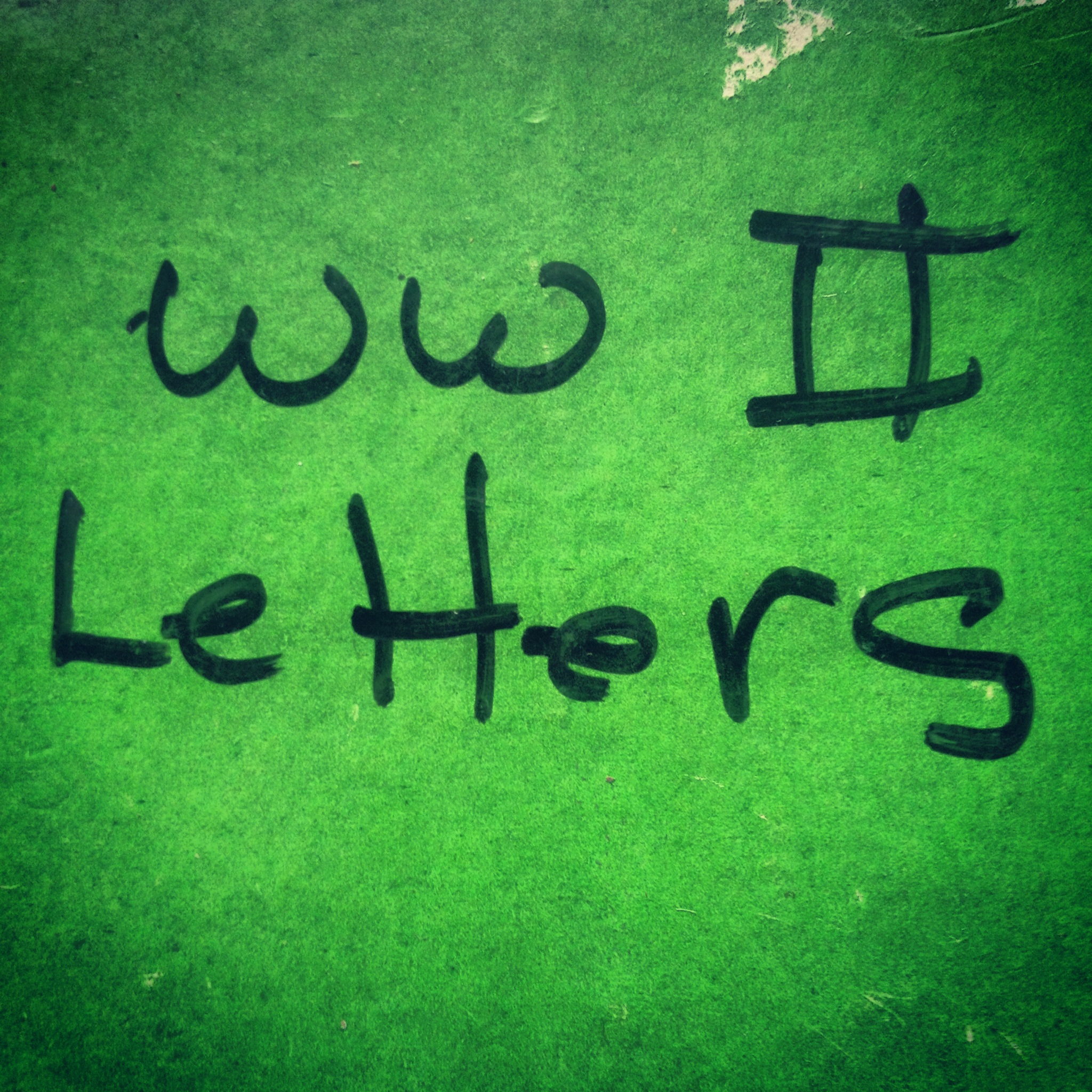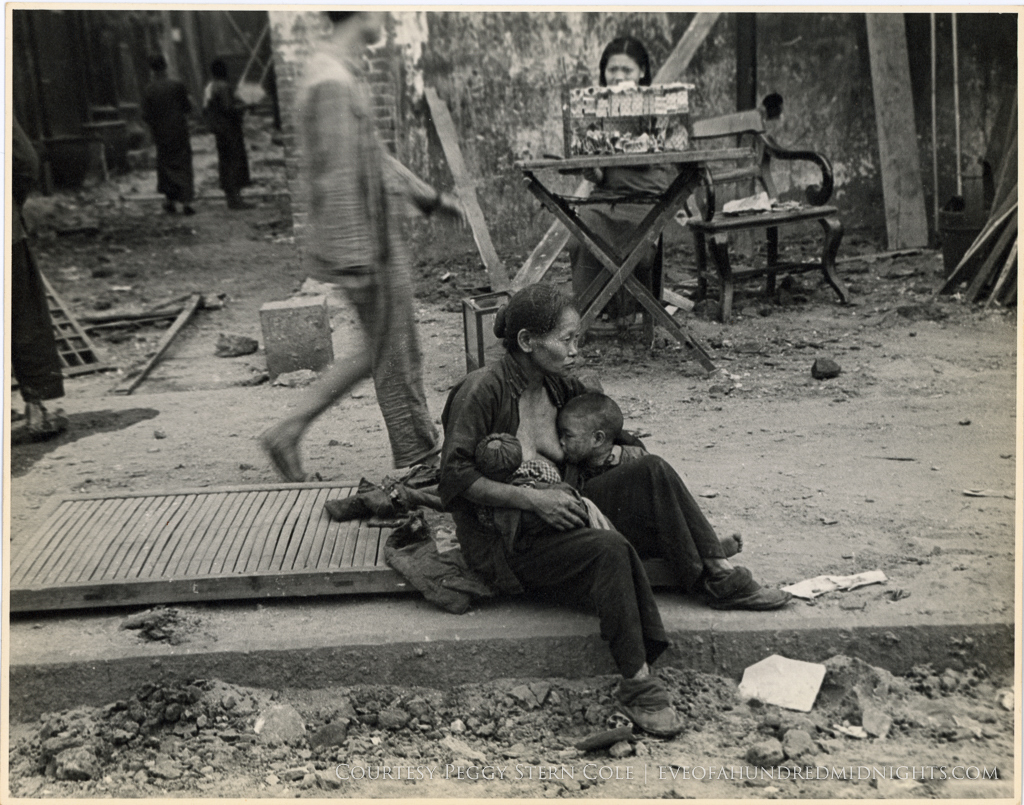
Bombing Season
Three quarters of a century ago, today, at the height of “bombing season,” World War II correspondent Melville Jacoby took a brief break from his radio broadcasts for NBC, his writing and photography for Time and Life magazines to write to his mother and stepfather about life in wartime Chungking, or Chongqing, then the capital of China.

Before and After. Wartime Chongqing as Captured by Melville Jacoby's Lens.
After spending four years with the research, writing and re-writing that shaped Eve of a Hundred Midnights, I feel sometimes as if I've lived in Melville Jacoby's shoes. At least, I feel as if I've seen the world through his eyes. As you can see in the following photos, Chongqing was a place of extensive striving and, after years and years of bombing — during his stints there in 1940 and 1941 Mel experienced 168 air raids — deeply scarred yet incredibly resilient.

Chongqing Aflame
Beyond the fireworks, you hear Chongqing in honking horns, sizzling streetside frying pans and screams of Sichuanese from every direction. At night, before your eyes, Chongqing's bright lights dance up skyscrapers, the same towers that shoot from fields of strewn rubble and half-buried buildings, far past the smog-smudged apartment blocks they're replacing. Chongqing's scent wafts from grilling meats and fetid alleys.
Hitting the (Silk) Road
Chongqing was hot. It was loud. It was squalid. It was crowded.
It was home. Chongqing was home.
"You get to like it,” Mel wrote.
Will I like it? Five weeks from today I will wake to my first morning in Beijing on the first leg of a trip through China and the Philippines. In the weeks to follow I hope to visit Guangzhou and Manila, to see Shanghai and Cebu, to ride trains through Guangxi, and to sail through the Visayas. Most importantly, perhaps, I hope to climb from the Yangtze through the exploding megalopolis of Chongqing and, I hope, to find this place Mel and Annalee and so many others once called home.
Chungking
“Learning to bum cigarettes from visitors, enduring a cold water bath, eating only Chinese food, getting letters home by clipper, settling the world’s problems over rice wine, and watching the Chinese in their tremendous efforts is all part of Chungking’s fun,"
— Melville Jacoby, Summer, 1941

Introducing "Monsieur Big-Hat"
Most of my posts about Melville Jacoby focus squarely on nonfiction. He was a journalist. I am a journalist. Though Mel worked for a time as a broadcaster and was handy with a camera, he was first and foremost a writer. So it shouldn't be terribly surprising that he dabbled in fiction a bit. I found one of those stories — "Monsieur Big-Hat" — and put it together with some photos Mel took of an air raid in Chongqing to make a short ebook that's now available online. The story describes what happens when an American correspondent meets a French diplomat as bombs fall on the Chinese wartime capital in June, 1940.
Search Posts
Archived Posts
- March 2024 1
- October 2023 1
- October 2022 2
- December 2017 1
- April 2017 1
- February 2017 1
- January 2017 1
- November 2016 2
- August 2016 2
- July 2016 2
- December 2015 1
- November 2015 2
- September 2015 3
- April 2015 1
- March 2015 1
- February 2015 1
- January 2015 4
- August 2014 1
- May 2014 1
- April 2014 4
- March 2014 6
- December 2013 1
- November 2013 1
- August 2013 3
- May 2013 2
- April 2013 1
- December 2012 3
- November 2012 2
- October 2012 2
- September 2012 3
- August 2012 6
- July 2012 4
- June 2012 1
- May 2012 6
- April 2012 2
- March 2012 3
- January 2012 2
- September 2011 2
- August 2011 2
- July 2011 1
- May 2011 9
- April 2011 2
- March 2011 1
- January 2011 2
- November 2010 1
- October 2010 1
- August 2010 3
- July 2010 1
- June 2010 1
- May 2010 12
- April 2010 2
- March 2010 1
- January 2010 1
- December 2009 1
- November 2009 4
- October 2009 2
- September 2009 2
- August 2009 1
- July 2009 1
- June 2009 4
- May 2009 1
- March 2009 5
- February 2009 4